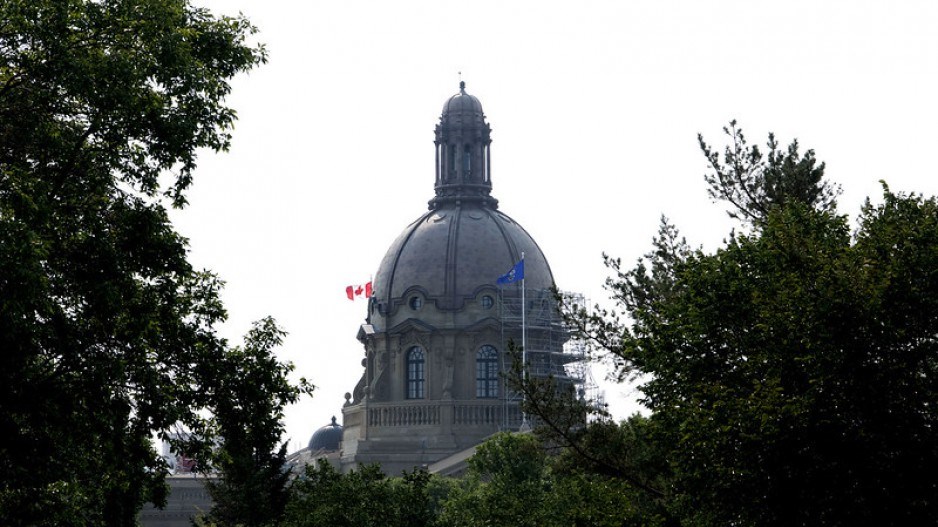In recent months, the perceptions of Albertans on many topics have appeared to differ dramatically from what is expressed in other Canadian provinces.
In the annual Research Co. and Glacier Media “Canada Day” survey, Albertans scored well below the national average on feeling proud about issues such as the economy (32 per cent versus 49 per cent), the justice system (36 per cent versus 57 per cent) and the state of democracy (49 per cent versus 67 per cent).
A few weeks ago, when we asked Canadians to rely on six words to describe main federal party leaders, 43 per cent of Albertans deemed Pierre Poilievre as intelligent, significantly ahead of the Canada-wide average of 34 per cent. In addition, 39 per cent of Albertans branded Justin Trudeau as “foolish,” 10 points higher than the national average (29 per cent).
The disconnect between Albertans and Ottawa is evident, and it is not a surprise to see residents of the province beginning to establish an emotional connection with the leader of the Conservative Party. Unfortunately, this has led to many misguided interpretations that suggest separation is a possibility.
Research Co. and Glacier Media asked Albertans last month about several prospects for the future. Fewer than one in five Albertans (19 per cent) say they would agree with Alberta joining the United States. This is consistent with what we found in February 2021 (18 per cent).
In early 2022, at a time when dissatisfaction with then-premier Jason Kenney was high, we were originally introduced to the Alberta Statehood Party. At the time, its proponents claimed to have a “10,000-member strong” organization. In this year’s provincial election, the party did not run a single candidate. Its neglected website serves as another reminder of the successful push to unite centre-right voters behind Danielle Smith.
While Alberta becoming an American state might be far-fetched, 22 per cent of Albertans (down three points since February 2021) agree with the idea of Alberta becoming an independent country.
For all the talk about the supposed inevitability of a sovereign Alberta, opponents of the concept outrank its cheerleaders by a margin larger than three-to-one: 71 per cent disagree and seven per cent are undecided.
Agreement with an independent Alberta rises to 27 per cent among the province’s residents aged 18 to 34, but drops to 25 per cent among those aged 35 to 54 and to 16 per cent among those aged 55 and over.
Residents of Calgary and its surrounding municipalities are more likely to be flirting with Alberta’s independence (26 per cent) than those who live in Edmonton (18 per cent) and the rest of the province (23 per cent). The divide across the political spectrum is extreme: Only nine per cent of Albertans who voted for the provincial New Democratic Party (NDP) this year would consent to an independent Alberta, compared to 29 per cent among United Conservative Party (UCP) voters.
These numbers are nowhere near a level that would suggest success. The short-lived provincial parties that advocated for some kind of separation – including two that featured the word “independent” in their names – did not win a single seat in this year’s election and lacked the structural competency to run candidates in at least half of Alberta’s 87 constituencies.
We asked Albertans about three other scenarios for independence. A new country formed by Alberta and Saskatchewan garners the backing of 23 per cent of the province’s residents (also down three points since February 2021). Adding Manitoba to the mix moves the needle forward to 25 per cent.
If a new country were formed with British Columbia, Alberta, Saskatchewan and Manitoba as components, three in 10 Albertans (30 per cent) would welcome it, but 61 per cent would not. Even if the unlikely political will to unite four distinct provinces existed, Albertans reject the new nation by a two-to-one margin.
Right now, the numbers do not suggest that Albertans, overflowing with dismay at the current state of affairs and contempt for the prime minister, are massively considering independence from Canada. Still, we are likely to be exposed to grandiose statements and social media posts claiming colossal support – especially if internet companies make it more difficult to link to properly researched studies that clearly outline where the data comes from (like the one you are reading).
Mario Canseco is president of Research Co.
Results are based on an online study conducted from June 10 to June 12, 2023, among 800 adults in Alberta. The data has been statistically weighted according to Canadian census figures for age, gender and region in each province. The margin of error – which measures sample variability – is plus or minus 3.5 percentage points, 19 times out of 20.



